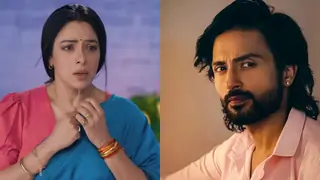@JShukla: I am not sure I understand how my post is biased towards women with sons. What I was trying to point out is that in the patriarchal system, women have power only in relation to men, so women with sons -- if they play their cards right and their adult son depends on them -- have an opportunity to fulfill their own personal desires through the son. In this system, having a daughter does not give you the same power because the daughter goes to another household once married, and does not have the power to make decisions or manage wealth. Therefore this system heavily disadvantages women without husbands, and without sons.
It seems that Sonakshi's household has not followed this structure for some generations. Instead, they follow the model of companionate marriage, where both spouses are equals and friends. There is no "head" of the household as such, and everyone operates on the assumption of goodwill. From the way Sona's dadi used to talk about her dada, it's clear they had that kind of relationship as well. Sona and Dev didn't fully understand the implications of introducing such a companionate marriage, what both of them wanted, into a patriarchal household.
I would be the last person to deny Ishwari's hypocrisy where the maika issue is concerned, but I am equally interested in the root of that hypocrisy, because I believe that in order to eliminate wrongdoing, it's important to understand its where it comes from. Here, I think the difference for Ishwari lies in context. Her brother helped them when they were in dire straits and had nobody else, while Sona's family only met them when they were well-off. She has deep trust issues, so she constantly nursed the doubt that Sona and her family were only in it to take advantage of Dev's wealth. In this she was absolutely wrong, because she ended up trusting the wrong people, believing blood is thicker than water, but I can see where the thought process came from.
Why MILs mistreat their DILs; it's definitely a power trip like you said, but often more calculated than the MIL just enjoying her power. You say they shouldn't mess with the DILs, in order to protect their positions, but why would they be willing to do that without putting up a fight? After all, the power they have in their son's life, and therefore in the household is construed as the reward for the years of quiet service as the ideal bahu. It's easy to say they should break out of this from our vantage point, but that path is not always clearly laid out for them. So basically, a son who loves his wife is a threat to the system that promised the mother delayed gratification.
Ishwari loves Dev and genuinely wants him to be happy, but her fear speaks louder than her love. I think her fear was losing control over Dev, who was the enactor of her will in a world she didn't think would acknowledge her desires as valid, and therefore losing her life's work. She is unable to come to terms with the fact that her happiness is no longer Dev's happiness, and since Sona was the first point at which that was made evident, she becomes a convenient scapegoat. And because Ishwari doesn't consider her son an adult, if he is not under her control, he must be under somebody's control -- again, convenient scapegoat is Sona and her abandonment.
Just to be clear, I am not trying to "convert" anyone into empathising with Ishwari, just expressing why I do.
Edited by Samanalyse - 8 years ago





































